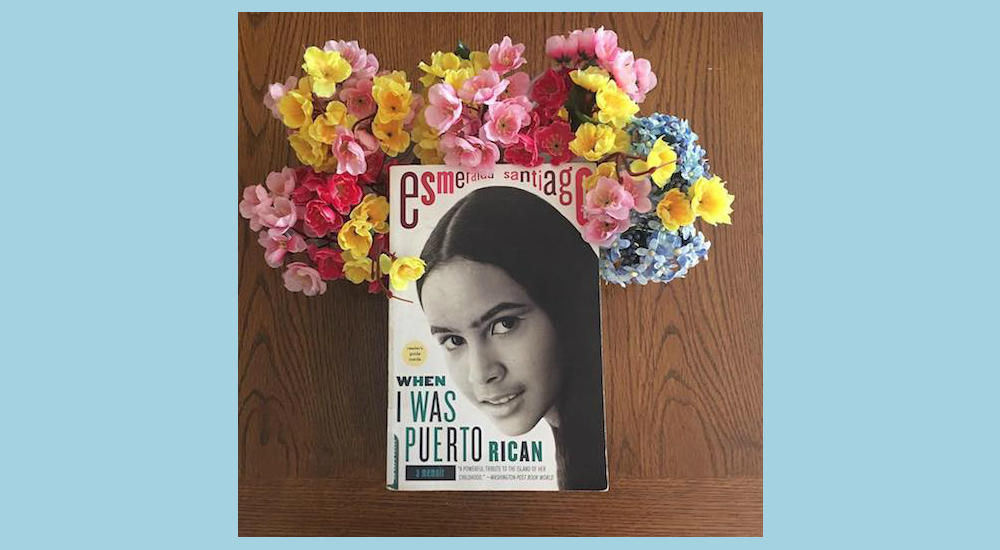We’ve grown accustomed to reading predominantly white and male authors our entire academic lives. High school reading lists and college syllabuses are filled with “the classics,” meaning an assortment of (mostly) white men from the Western canon of literature. This established lack of representation in the books we read, the narratives we’re exposed to, and the cultures we neglect, calls for a need to shake things up.
That’s what Sabrina Rodriguez, 19-year-old and journalism major at Baruch College in New York, is doing.
Rodriquez created an extensive online database of Latinx literature — written by Latinx authors for Latinx communities — on Instagram where she logs all her reading. @LatinxReads features photos and reviews of classics like Sandra Cisneros’s The House on Mango Street and Isabel Allende’s The House of Spirits, YA coming-of-age novels like Erika L. Sanchez’s I Am Not Your Perfect Mexican Daughter, and memoirs like Diane Guerrero’s In the Country I Love. The books are all adorned with colorful floral crowns à la Frida Kahlo.

In high school, Rodriguez says her required reading included works like The Great Gatsby, Catcher in the Rye, and Lord of the Flies. “It’s all written about white people,” Rodriguez said. “It wasn’t until I went to college that I thought, why am I reading about all these people I have nothing in common with?”
Growing up in a household with a myriad of backgrounds and cultures was “definitely interesting.” Rodriguez grew up in a Jewish neighborhood in Queens, New York. Her mother is Cuban and Italian, and her father is Puerto Rican. Despite her upbringing being diverse, she still felt a sense of inadequacy in not being “Latina enough.”
“After I took my first Latino Studies class [during my freshman year], I had a wake-up call,” Rodriguez said. “I realized I wasn’t as in touch with my roots or my Latinidad as I had thought.”
Like many daughters and sons of immigrants who have had to learn multiple languages, Rodriguez says her inability to speak Spanish has also affected the way her Latinidad is perceived by others. “It’s the one factor that quote-unquote makes you Latino, you know? A lot of people will dismiss you,” she said. “I grew up not really wanting to face and admit the fact that I was Latina — I felt I didn’t have the [right] to be proud of being Puerto Rican, to be proud of being Cuban.”
When she started @LatinxReads, it was just for herself. She wanted to immerse herself in her roots and reading was the best way she knew how, “to read about other people’s experiences.” As her follower count kept growing she realized she wasn’t “alone in this, there are other people who feel they need something like @LatinxReads, so now I’m doing it for all of us.” Rodriguez has taken matters of representation and uplifting other communities, narratives and experiences of people of color into her own hands.
She explains that although we can’t always necessarily put ourselves in someone else’s shoes, reading can help do that. “We can’t be other people but sometimes reading helps us [feel] what that other person is feeling, and it lets us understand situations that we would never be in,” Rodriguez said. “It just fills you, it does. It makes you a better person.”

But she’s not perfect, nor does she claim to be. She admits that sometimes she struggles to find books that celebrate all the cultures that exist under the Latinx umbrella. She listens, and asks for recommendations from her followers for authors and books from underrepresented corners of the world. In a post to her followers she wrote, “This page has kinda become exactly what I didn’t want it to be… I love all my Mexicanxs/Chicanxs, my Boricuas, Dominicanxs y Cubanxs [BUT] we are not the only Latinx out there!”
Ultimately, Rodriguez is compiling a much-needed digital library available at our fingertips for people to read outside of the classic literary canon, or to simply find their lives represented through the stories she shares.
Rodriguez also believes in straying away from boxing Latinx stories in one category: immigration. “Of course those stories [of immigration] are important,” she said. “We need to read those, we need to learn about those, especially now.” She simply wishes publishers would stop centering Latinx stories around just one aspect of their lives. “It could be a story about anything, but of course, if it’s a story about a [Latinx] family, it has to be about the fact that they’re immigrating, it has to be about the fact that they’re living in poverty.”
While there’s truth to those narratives, it’s not the bigger picture. It’s only a fraction of the Latinx experience.
“Don’t tokenize people, it’s just about including other people’s ideas,” Rodriguez said. “You can’t tell me that books written about the same topic but from people of different cultures are going to have the same things to say. We can have different perspectives.”


